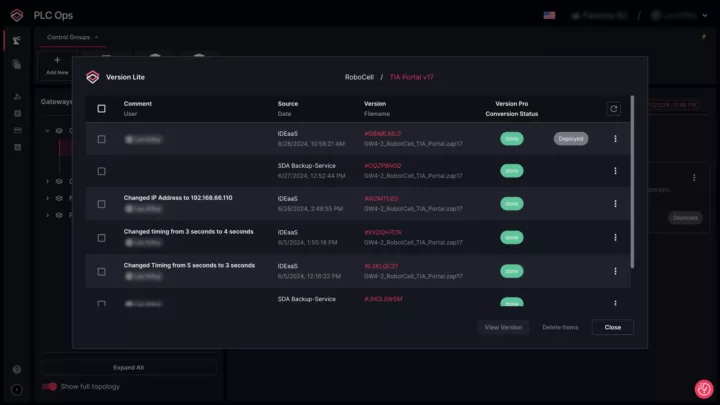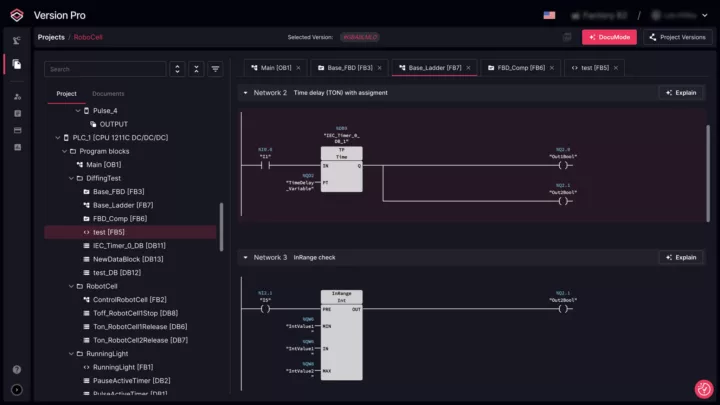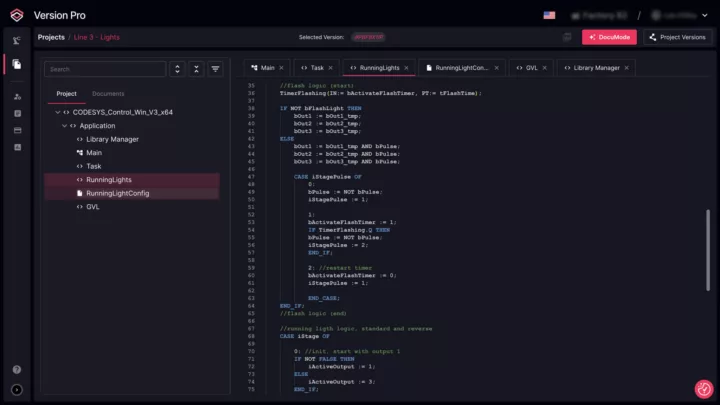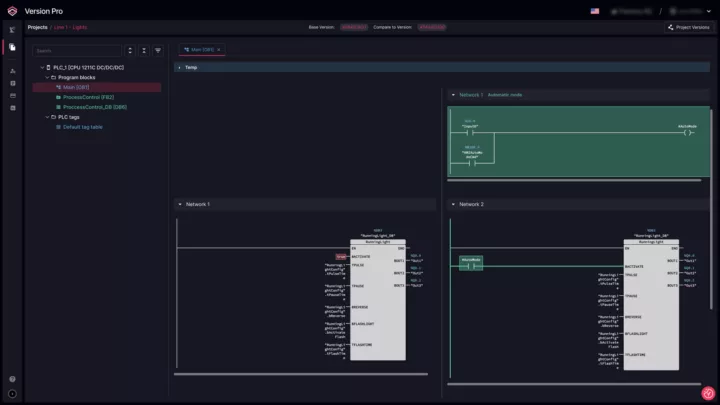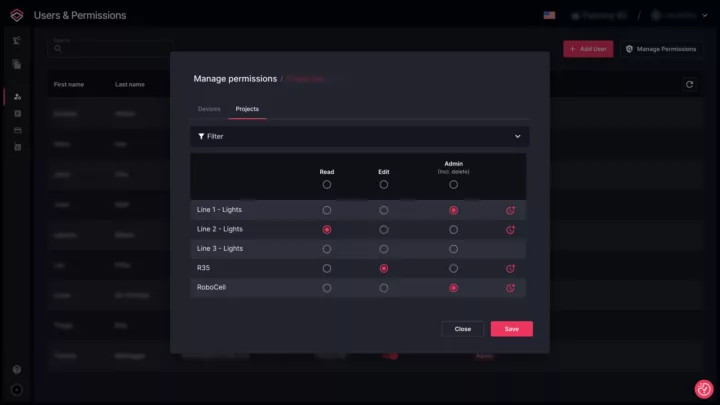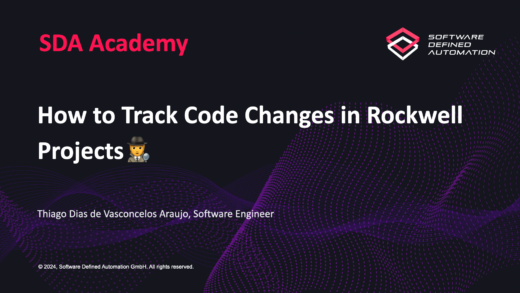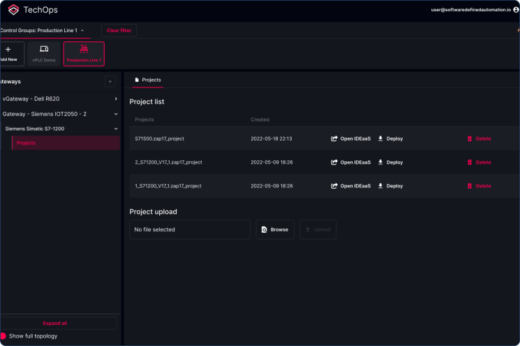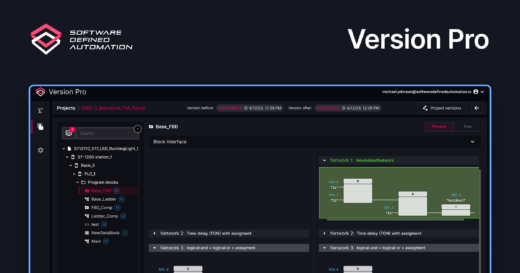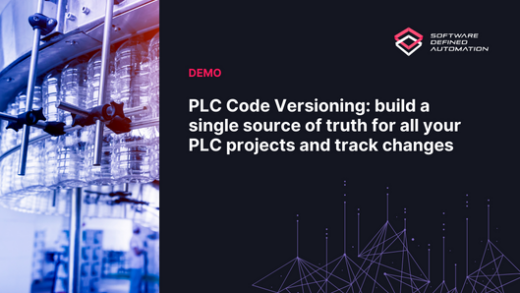Version Control
Unify PLC code management and version tracking.
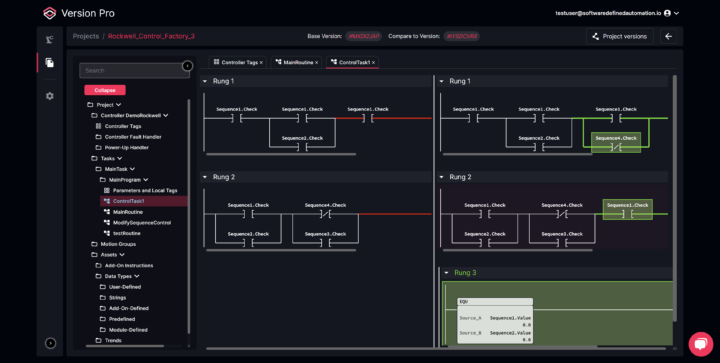
Version Control
Unify PLC code management and version tracking.
The biggest challenge for programmable logic controllers (PLCs) often isn’t bad code, it’s changes in code that aren’t properly managed.
This could be as small as moving a sensor’s position and altering the heat threshold.
However, code versioning is largely manual, sometimes as basic as relying on people to update the file name with a version number and copying it to a shared drive, which is prone to human error and inconsistencies. There’s too much opportunity for changes to get missed, updates to get overwritten, and code knowledge to walk out the door in the heads of programmers on vacation or leaving the company.
The industry has gotten very good at automating manufacturing processes, but the automation of PLC code versioning has not developed apace. Software Defined Automation’s Version Control removes the burden of versioning so programmers can focus on the code itself. Everyone who needs access can quickly find the latest files, and a complete audit trail of changes is preserved.
Automatically Capture Every Change
See the four Ws—who, what, when, and why—for every change made and easily roll back to a previous version if needed. This auditability removes the need for manual version logging and makes the information available to better support operational needs and security/compliance requirements.
Easily Review Code
Vendor-specific presentation provides you with code in the IEC 61131-3 programming languages (Ladder Logic, Structured Text, and Function Blocks) that your programmers already know—no additional training required. And it’s delivered via a browser, making it cost-effective, convenient, and secure.
Restrict Access, Not Productivity
SDA provides role-based permissions and IP management to protect your PLC code. Granular permissions allow you to set who has read and read/write access at the device level, and you can provide access to specified portions of renderings to third parties while safeguarding the code you don’t need to share.
